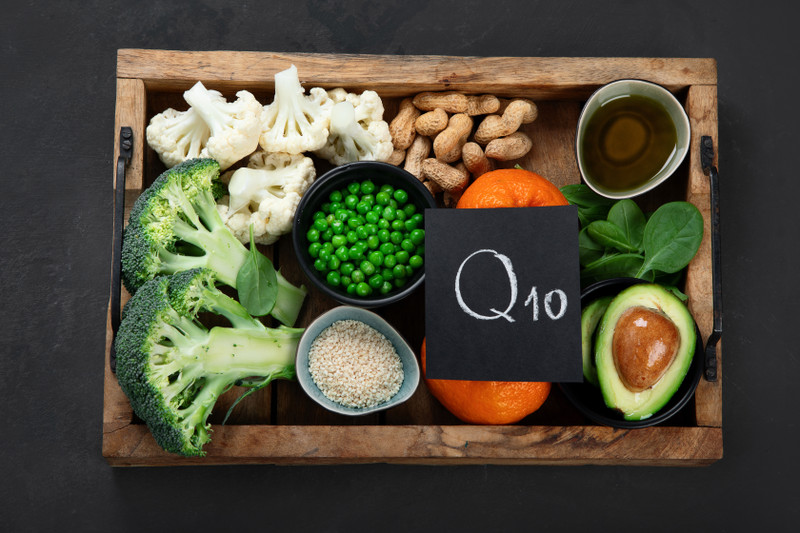As we age, maintaining heart health becomes increasingly important. Cardiovascular disease is a leading cause of death worldwide, and aging naturally brings changes to the heart and blood vessels, such as stiffened arteries and reduced cellular energy production. Fortunately, there are ways to support heart health, and Coenzyme Q10 (CoQ10) is one of the most effective tools in the arsenal.
What Is CoQ10?
CoQ10, short for coenzyme Q10, is a fat-soluble compound found in nearly every cell in the body. It plays a vital role in energy production, particularly in the mitochondria, where it helps generate adenosine triphosphate (ATP)—the energy currency of the cell. CoQ10 also serves as a powerful antioxidant, protecting cells from oxidative damage caused by free radicals.
While the body produces CoQ10 naturally, its levels tend to decline with age. Certain health conditions, such as heart disease, diabetes, and neurodegenerative disorders, as well as the use of specific medications like statins, can further deplete CoQ10 levels. This decline can affect the heart, which requires a constant supply of energy to function efficiently.
How CoQ10 Supports Heart Health
1. Boosts Cellular Energy Production
The heart is one of the most energy-demanding organs in the body. CoQ10 is essential for producing the ATP that powers heart muscle contractions. By supporting mitochondrial function, CoQ10 helps ensure that the heart has the energy it needs to pump blood effectively.
As CoQ10 levels decline with age, supplementation can help restore energy production, improving overall heart function and reducing the risk of heart failure.
2. Reduces Oxidative Stress
Oxidative stress is a significant contributor to heart disease and aging. It occurs when there’s an imbalance between free radicals and antioxidants in the body, leading to cellular damage. CoQ10’s antioxidant properties help neutralize free radicals, reducing oxidative stress and protecting heart cells from damage.
By minimizing oxidative stress, CoQ10 helps maintain the health of blood vessels, reducing the risk of conditions like atherosclerosis.
3. Lowers Blood Pressure
High blood pressure is a major risk factor for heart disease, and CoQ10 has been shown to help reduce it. Studies suggest that CoQ10 can lower both systolic and diastolic blood pressure by improving blood vessel function and reducing oxidative damage.
For older adults managing hypertension, CoQ10 offers a natural way to support healthy blood pressure levels alongside traditional treatments.
4. Improves Cholesterol Levels
CoQ10 may also support healthy cholesterol levels by reducing low-density lipoprotein (LDL) oxidation. Oxidized LDL is more likely to form plaque in the arteries, contributing to atherosclerosis. By protecting LDL from oxidative damage, CoQ10 helps maintain healthier arteries and reduces the risk of heart disease.
5. Supports Patients on Statins
Statin medications, commonly prescribed to lower cholesterol, are known to reduce CoQ10 levels as a side effect. This can lead to muscle pain and weakness, and in some cases, negatively impact heart health. Supplementing with CoQ10 can help replenish levels, mitigating these side effects and supporting cardiovascular function in those taking statins.
6. May Improve Symptoms of Heart Failure
Heart failure occurs when the heart can’t pump blood effectively, leading to symptoms like fatigue, shortness of breath, and fluid retention. Research has shown that CoQ10 supplementation can improve symptoms and reduce the risk of hospitalizations in individuals with heart failure by enhancing energy production and reducing oxidative stress in heart cells.
Why Older Adults Should Consider CoQ10
As we age, the cumulative effects of oxidative stress, reduced mitochondrial function, and CoQ10 depletion can significantly impact heart health. By supplementing with CoQ10, aging adults can:
- Boost energy levels.
- Support healthy blood pressure and cholesterol.
- Protect heart cells from oxidative damage.
- Reduce the risk of cardiovascular diseases, including heart failure and atherosclerosis.
In addition to its heart-specific benefits, CoQ10 may also improve overall energy levels, enhance cognitive function, and support healthy aging.
How to Choose the Right CoQ10 Supplement
When selecting a CoQ10 supplement, consider the following factors:
- Form: CoQ10 comes in two forms—ubiquinone and ubiquinol. Ubiquinol is the active, more readily absorbed form, making it a preferred choice for older adults or those with absorption issues.
- Dosage: Typical daily doses range from 100 mg to 300 mg, depending on individual health needs. Consult with a healthcare provider to determine the right dosage.
- Quality: Look for high-quality supplements from trusted brands that ensure purity and potency.
A Note from Us
CoQ10 is a powerful, natural way to support heart health, particularly for older adults. Its role in energy production, antioxidant protection, and cardiovascular function makes it a valuable supplement for maintaining a healthy heart as you age. Whether you’re managing existing heart conditions, taking statins, or simply looking to protect your heart, CoQ10 can help you stay active and vibrant.

